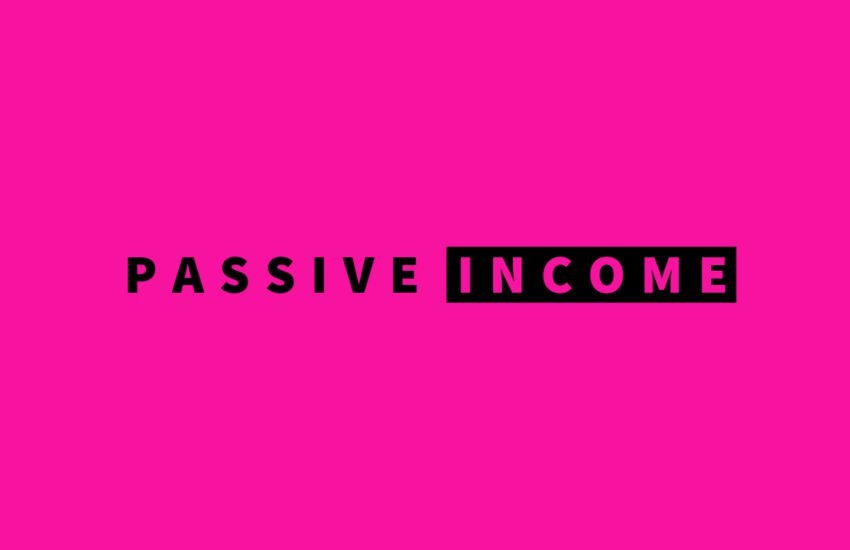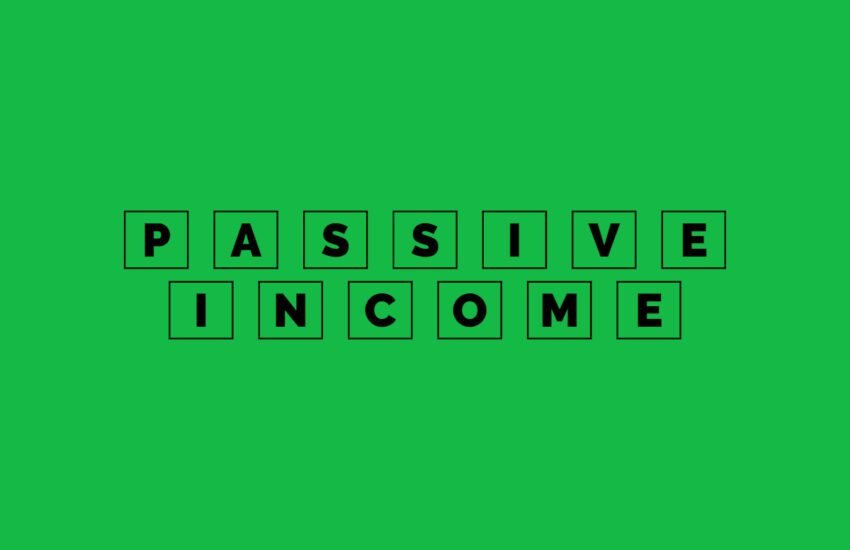Choosing the Right Social Media Platforms for Blog Promotion
As a blogger, having a strong presence on social media is essential for expanding your reach and growing your audience.
With so many social media platforms available, it can be overwhelming to decide which ones are the best fit for your blog.
- Some Popular Social Media Platforms for Blog Promotion
- Choosing the Right Platforms
- Conclusion
- Frequently Asked Questions
- 1. Why is it important to choose the right social media platforms for blog promotion?
- 2. How can I identify the social media platforms where my target audience is most active?
- 3. What factors should I consider when choosing social media platforms for blog promotion?
- 4. How many social media platforms should I focus on for blog promotion?
- 5. How can I tailor my content to different social media platforms?
- 6. How can I effectively schedule and distribute my blog content on social media?
- 7. How can I engage with my audience on social media to drive traffic to my blog?
- 8. How can I measure the effectiveness of my social media promotion efforts for my blog?
- 9. How can I optimize my social media profiles to drive traffic to my blog?
- 10. How can I adapt my social media strategy for blog promotion over time?
Some Popular Social Media Platforms for Blog Promotion
In this article, we will explore some of the most popular social media platforms and help you determine which ones you should consider for promoting your blog.
1. Facebook
Facebook is the largest social media platform with billions of active users.
It offers a wide range of features that can benefit bloggers, such as creating a dedicated page for your blog, sharing your blog posts, and engaging with your audience through comments and messages.
Facebook also provides targeted advertising options, allowing you to reach specific demographics or interests.
2. Twitter
Twitter is known for its real-time nature and concise messaging. It is a great platform for sharing short updates, blog post links, and engaging in conversations with your followers.
Hashtags on Twitter make it easier for users to discover content related to specific topics, so incorporating relevant hashtags in your tweets can help increase your visibility.
3. Instagram
Instagram is a highly visual platform that is ideal for bloggers who create visually appealing content.
You can share high-quality images and videos related to your blog posts, behind-the-scenes content, and showcase your personal brand.
Instagram Stories and IGTV are additional features that allow you to connect with your audience in a more interactive and authentic way.
4. Pinterest
Pinterest is a visual search engine that can drive significant traffic to your blog. By creating visually appealing pins and optimizing them with relevant keywords, you can increase the visibility of your blog posts.
Pinterest is particularly effective for bloggers in niches such as fashion, food, home decor, and DIY.
5. LinkedIn
If your blog focuses on professional topics or offers career-related advice, LinkedIn can be a valuable platform for networking and sharing your expertise.
You can publish articles on LinkedIn’s publishing platform, join relevant groups, and connect with professionals in your industry.
6. YouTube
YouTube is the second-largest search engine after Google and is an excellent platform for bloggers who prefer video content.
You can create and upload videos related to your blog posts, tutorials, vlogs, or any other content that aligns with your blog’s niche. YouTube also allows you to monetize your videos through advertising and sponsorships.
7. TikTok
TikTok has gained immense popularity in recent years, especially among younger audiences. It is a short-form video platform that allows you to showcase your creativity and engage with a diverse community.
If your blog caters to a younger demographic or if you enjoy creating short, entertaining videos, TikTok can be a valuable addition to your social media strategy.
8. Snapchat
Snapchat is another platform known for its ephemeral content. It allows you to share photos and videos that disappear after a certain period.
Snapchat can be useful for behind-the-scenes content, exclusive promotions, or engaging with a younger audience. However, it may not be as effective for driving traffic directly to your blog.
Choosing the Right Platforms
When deciding which social media platforms to use for your blog, consider your target audience, the type of content you create, and your personal preferences. It’s important to focus on platforms that align with your blog’s niche and where your target audience is most active.
Start by selecting a few platforms that you feel comfortable using and that are popular among your target audience. It’s better to have an active and engaged presence on a few platforms than to spread yourself too thin across multiple platforms.
Regularly analyze the performance of your social media efforts using analytics tools provided by each platform. This will help you identify which platforms are driving the most traffic and engagement to your blog, allowing you to optimize your strategy accordingly.
Conclusion
The right social media platforms for your blog will depend on your niche, target audience, and content preferences. By strategically selecting and utilizing the platforms that align with your goals, you can effectively promote your blog and connect with your audience on a deeper level.
Frequently Asked Questions
1. Why is it important to choose the right social media platforms for blog promotion?
Choosing the right social media platforms for blog promotion is crucial because it allows you to reach and engage with your target audience effectively.
Each social media platform has its own demographics, user behaviors, and content formats, so selecting the platforms where your audience is most active ensures that your blog content resonates with the right people.
By focusing your efforts on the platforms where your audience spends their time, you can maximize the impact of your promotion efforts and drive more traffic to your blog.
2. How can I identify the social media platforms where my target audience is most active?
To identify the social media platforms where your target audience is most active, start by conducting audience research to understand their demographics, interests, and online behaviors.
Use analytics tools like Google Analytics, social media insights, or audience demographics reports to gather data on your existing audience and their preferred social media platforms.
Additionally, survey your audience or engage in conversations to gather qualitative insights into their social media usage habits and preferences.
Pay attention to industry trends, market research, and competitor analysis to identify which platforms are popular among your target demographic and where your competitors are active.
By combining quantitative data with qualitative insights, you can make informed decisions about which social media platforms to prioritize for blog promotion.
3. What factors should I consider when choosing social media platforms for blog promotion?
When choosing social media platforms for blog promotion, consider factors such as your target audience demographics, content format preferences, engagement levels, and industry trends.
Evaluate each platform’s user base, including age, gender, location, interests, and online behaviors, to ensure it aligns with your target audience.
Assess the types of content that perform well on each platform, such as images, videos, articles, or live streams, and choose platforms that support the content formats you produce for your blog.
Look at engagement metrics like likes, shares, comments, and click-through rates to gauge how active and responsive each platform’s audience is.
Finally, consider industry trends and emerging platforms to stay ahead of the curve and capitalize on new opportunities for reaching and engaging with your audience. By considering these factors, you can select the social media platforms that offer the best fit for promoting your blog effectively.
4. How many social media platforms should I focus on for blog promotion?
While it’s tempting to try to maintain a presence on every social media platform, it’s more effective to focus your efforts on a select few platforms where your target audience is most active.
Aim to prioritize two to three social media platforms initially, based on your audience research and content format preferences.
By focusing your efforts on a smaller number of platforms, you can allocate more time and resources to creating high-quality content, engaging with your audience, and refining your promotion strategies.
Additionally, concentrating your efforts allows you to develop a more cohesive and consistent brand presence across your chosen platforms, which can enhance recognition and trust among your audience.
As you gain experience and resources, you can consider expanding your presence to additional platforms or experimenting with new strategies to further diversify your promotion efforts.
5. How can I tailor my content to different social media platforms?
Tailoring your content to different social media platforms is essential for maximizing engagement and effectiveness.
Each platform has its own unique features, content formats, and audience preferences, so it’s important to customize your content to fit each platform’s specifications. Start by understanding the content formats that perform well on each platform, such as images, videos, stories, or live streams, and adapt your blog content to match.
For example, on Instagram, focus on visually appealing images or short videos that highlight key points from your blog posts, while on Twitter, craft concise and engaging tweets with catchy headlines and relevant hashtags.
Consider the tone, style, and voice that resonates with each platform’s audience and adapt your messaging accordingly. Additionally, leverage platform-specific features like Instagram Stories, Facebook Live, or LinkedIn articles to create interactive and immersive experiences for your audience.
By tailoring your content to each platform’s strengths and audience preferences, you can increase engagement, reach, and effectiveness in promoting your blog.
6. How can I effectively schedule and distribute my blog content on social media?
Effectively scheduling and distributing your blog content on social media requires careful planning and coordination.
Start by creating a content calendar to organize your blog posts, social media updates, and promotion schedule. Use scheduling tools like Buffer, Hootsuite, or Sprout Social to plan and automate your social media posts across multiple platforms.
Consider the best times to post on each platform based on your audience’s online behaviors, time zones, and engagement patterns.
Experiment with different posting frequencies and timings to find the optimal schedule for reaching and engaging with your audience.
Additionally, leverage platform-specific features like Facebook Insights, Twitter Analytics, or LinkedIn Page Analytics to monitor the performance of your social media posts and refine your posting strategy over time.
By scheduling and distributing your blog content strategically, you can maximize visibility, engagement, and traffic from social media.
7. How can I engage with my audience on social media to drive traffic to my blog?
Engaging with your audience on social media is essential for building relationships, fostering loyalty, and driving traffic to your blog.
Start by actively monitoring your social media channels for comments, mentions, and messages, and respond promptly and thoughtfully to engage with your audience. Ask questions, solicit feedback, or spark conversations to encourage interaction and participation from your followers.
Share behind-the-scenes glimpses of your blog’s creation process, personal anecdotes, or user-generated content to humanize your brand and create a sense of community. Host live Q&A sessions, webinars, or Twitter chats to provide value and interact with your audience in real-time.
Encourage user-generated content by running contests, challenges, or campaigns that encourage followers to create and share content related to your blog.
Finally, leverage social media analytics and insights to monitor engagement metrics, track performance, and identify opportunities for improvement.
By actively engaging with your audience on social media, you can foster deeper connections, increase brand loyalty, and drive more traffic to your blog.
8. How can I measure the effectiveness of my social media promotion efforts for my blog?
Measuring the effectiveness of your social media promotion efforts for your blog is essential for evaluating performance, identifying areas for improvement, and optimizing your strategies over time.
Start by establishing clear goals and key performance indicators (KPIs) related to your social media promotion efforts, such as website traffic, engagement, conversions, or brand awareness. Use social media analytics tools like Facebook Insights, Twitter Analytics, or LinkedIn Page Analytics to track and measure key metrics such as reach, impressions, engagement, clicks, shares, and conversions.
Monitor the performance of your social media posts, campaigns, and promotions to identify trends, patterns, and areas of success or improvement. Conduct A/B testing or experiments to test different strategies, formats, or messaging and determine what resonates most with your audience.
Finally, regularly review and analyze your social media performance data to make data-driven decisions, refine your promotion strategies, and optimize your efforts for maximum impact.
By measuring the effectiveness of your social media promotion efforts, you can ensure that your blog receives maximum visibility, engagement, and traffic from social media channels.
9. How can I optimize my social media profiles to drive traffic to my blog?
Optimizing your social media profiles is crucial for driving traffic to your blog and maximizing your visibility and reach on social media platforms.
Start by ensuring that your profile information is complete, accurate, and up-to-date. Include relevant keywords, hashtags, and phrases in your profile bio, description, and headline to improve discoverability and searchability.
Use high-quality, visually appealing profile and cover images that reflect your brand identity and capture users’ attention. Include a link to your blog in your profile bio or website field to make it easy for users to navigate to your blog.
Additionally, leverage platform-specific features like Instagram Highlights, Facebook Featured Photos, or Twitter Pinned Tweets to showcase your best content or highlight important announcements, promotions, or blog posts.
Finally, regularly monitor and update your social media profiles to reflect any changes or updates to your blog or brand. By optimizing your social media profiles, you can increase visibility, credibility, and traffic to your blog from social media platforms.
10. How can I adapt my social media strategy for blog promotion over time?
Adapting your social media strategy for blog promotion over time is essential for staying relevant, effective, and competitive in a rapidly evolving digital landscape.
Start by regularly reviewing and analyzing your social media performance data to identify trends, patterns, and areas for improvement. Pay attention to changes in user behavior, platform algorithms, industry trends, and competitor strategies to stay informed and agile.
Experiment with new content formats, posting schedules, or engagement tactics to keep your social media strategy fresh and engaging. Incorporate feedback from your audience, social media analytics, and performance metrics into your strategy refinement process to make data-driven decisions.
Finally, remain flexible and adaptable in your approach, willing to pivot or adjust your strategy based on changing circumstances, user preferences, or platform updates.
By continually iterating and optimizing your social media strategy for blog promotion, you can stay ahead of the curve and drive sustainable growth and success for your blog over time.


